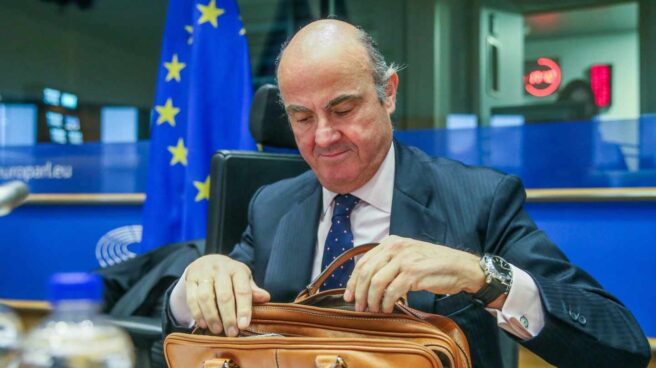

Spanish Economy Minister Luis de Guindos speaking to the European Parliament.
This month there will be a new rate hike in the euro area. At least that’s what Vice President of the European Central Bank (ECB) Luis de Guindos said today. He indicated that he anticipates an increase in interest rates in the euro area by a quarter of a point. At the Euro Finance Summit in Frankfurt, de Guindos recalled that they had already announced their “intention to raise ECB base rates by 25 basis points at the July 21 monetary policy meeting” and raise them again in September.
The size of the interest rate hike in September will depend on new medium-term inflation forecast, according to the Vice President of the ECB. If those prospects “continue or worsen,” “an increase of more than 25 basis points would be appropriate,” de Guindos added.
The ECB plans to raise the price of money further gradually, depending on data on wage growth and inflation.
De Guindos recalled that in order to “fight fragmentation”, the ECB began to flexibly reinvest the bulk of bonds purchased during the pandemic, which are due to expire, from July 1. The ECB has instructed the relevant committees of the Eurosystem and the services of the ECB to expedite the completion of the development of a new anti-fragmentation instrument for consideration.
Exceptional Circumstances
The Governing Council will discuss the tool at its July 21 meeting, ECB President Christine Lagarde said last week. monetary policy adjustments According to de Guindos, they should have “the same impact on the financing conditions applied to two equally solvent companies in the euro area, regardless of where they are located.”
President of the (Central) Bundesbank Joachim Nagel told the conference that “unusual monetary policy measures to combat fragmentation can only be justified in exceptional circumstances and under very specific conditions.”
An anti-fragmentation tool is justified, according to Nagel, if the spreads are unjustified and are the result of excesses in financial markets, if some eurozone countries do not receive the expected monetary policy signals and if this impedes price stability in the area. Nagel considers it important that this stocking be “strictly temporary”.
He recalled that there is already a program for the purchase of bonds with conditions (OMT), which was recognized as legal by the European Court of Justice and the Constitutional Court of Germany. According to Reuters, Nagel voted on June 15 at an extraordinary meeting of the ECB against the new instrument against fragmentation. And it sets the conditions for voting in favor of buying some countries’ sovereign bonds when their spreads run against the Bund, a ten-year German bond that serves as a benchmark.
Source: El Independiente